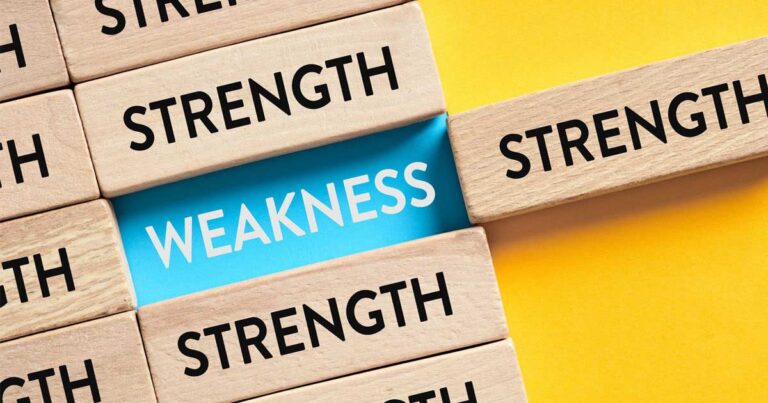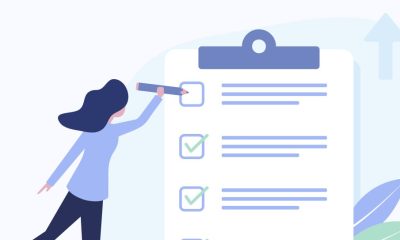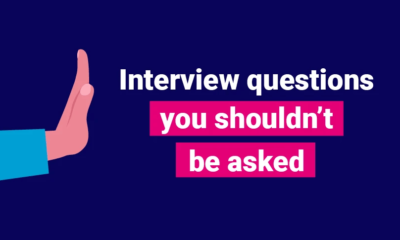Career Tips
How To Answer What Are Your Weaknesses In A Job Interview

The typical “What are your greatest strengths?” job interview question is a softball. It’s an invitation to highlight all of your abilities and experiences that make you an excellent candidate for the job. The surprise comes when you are questioned about your weaknesses during a job interview.
“Tell me about your greatest weaknesses,” trips up many job interviewees, and it’s no wonder: How do you tell an interviewer about your shortcomings without sounding like you’d be hopeless on the job?
In a job interview, you want to highlight your weaknesses in a positive way. Hiring managers want to know how you handle workplace challenges.
To start, think about the limitations that have challenged you at work.. Past performance evaluations and supervisor feedback can help you list your weaknesses.
Research the employer and position. Review the job posting before the interview to avoid missing a crucial requirement. Reread the job description to learn what skills are necessary. Hard or soft skills shouldn’t be weaknesses. Anything else goes. If you are working with a recruiter, ask your recruiter for help preparing for this unpleasant question.
Examples of weaknesses on the job
Do any of these weaknesses ring a bell? Note that these aren’t good choices for your answer if the job requires specific skills in these areas.
- Inexperience with specific software or a non-essential skill
- Tendency to take on too much responsibility
- Nervousness about public speaking
- Hesitancy about delegating tasks
- Discomfort taking big risks
- Impatience with bureaucracies
What to avoid in your answer
Your first reaction may be, “I have no weaknesses, and nothing will keep me from doing a great job.” Hiring managers recognize no one is perfect. If you enthusiastically deny this question, the interviewer may label you as self-centered, overconfident, or unwilling to learn from mistakes.
In a job interview, hiring managers are also aware of responses that attempt to frame a positive trait as weaknesses in a job interview. “I’m a perfectionist,” “I’m competitive,” and “I work too hard” are classics. Typical answers can be successful if you add job-related information to indicate you’ve thought about them. Interviewers know them.
For instance, “I have high standards and sometimes put too much pressure on myself.” I’ve learned to detect when I’m doing this, like spending too much time on bigger projects like quarterly reports, and I can usually keep myself in check.”
Put your weaknesses in a positive light
Once you’ve established your weakness, craft a response to put it in the most positive light. How do you do that?
Here are three suggestions:
- Emphasize the positive, avoiding negative words like failure or inept.
- Talk about how you’ve transformed your weakness into a strength.
- Show how you recognize where you need to improve and take steps to better yourself.
What are ways you can improve yourself to address a weakness?
- Take a class or get training.
- Discover tools, such as apps, to track your time, schedule breaks or collaborate more smoothly.
- Work with a mentor.
- Engage in volunteer work to build a skill.
- Join professional groups or industry associations.
Sample responses to ‘What are your weaknesses?’
The question allows you to differentiate yourself. How so? You can demonstrate to the hiring manager that you are aware of the areas in which you need to improve and that you are taking action to address them. Here’s an example of a response that takes this approach:
- “Although I always met my deadlines, I used to have a problem with procrastination, and I’d end up working really long days as a deadline approached. I decided that I needed to deal with the issue, so I took classes on project management and time management. I learned how to organize my days and attack bigger projects in manageable chunks. Now, I put together a plan as soon as I get a new assignment, and I often beat my deadlines.”
Another example shows how to answer using job requirements. Let’s imagine you’re applying for a graphic design job but aren’t a good writer. The job description stresses production design and software experience but not content creation. In an interview, you could answer shortcomings like this:
- “I’ve always been on the design side of things and haven’t had much experience with content creation, so I’d say that’s a weakness for me. However, I’m a quick learner, and I believe I could improve my writing skills if I ever needed to for my job.”
Alternatively, if you’re seeking for a job as a financial analyst and one of the job criteria is to provide regular reports to senior management, you won’t want to emphasize to the hiring manager that you have issues with communication.
Why is the weakness question important?
Like most job interview questions, “What are your weaknesses?” is difficult to respond. It’s more than a hurdle or a trap. It’s a chance to show the employer that you can take criticism, adapt to new situations, and recover from failure. Any employer would value those.


















